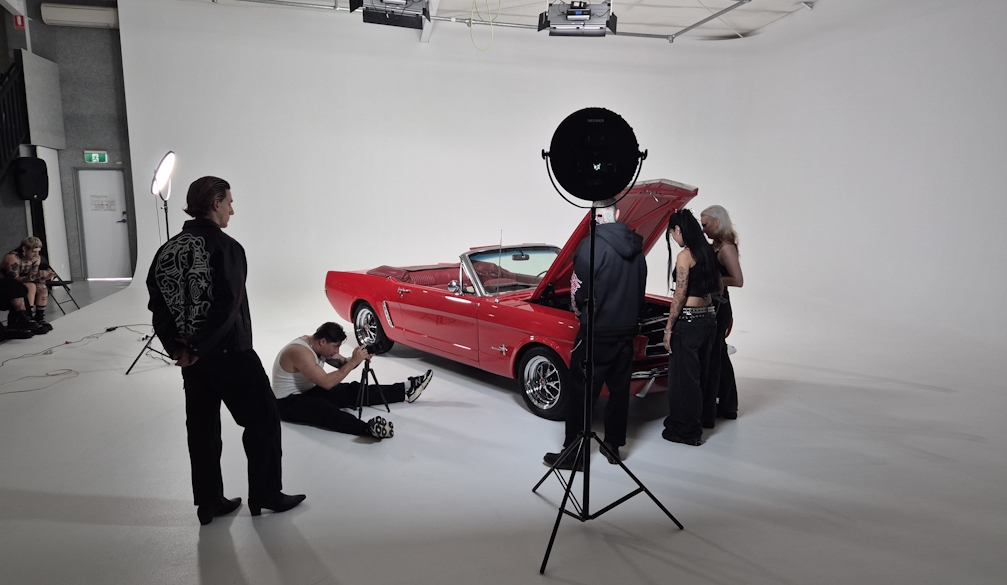Few foundations give groups they support decision-making power on funding priorities
- Written by Emily Finchum-Mason, Doctoral candidate in Public Policy and Management, University of Washington

The Research Brief[1] is a short take about interesting academic work.
The big idea
Eighty-three percent of large U.S. foundations seek input[2] from some of the nonprofits they fund – along with other people, organizations or communities directly affected by their funding[3]. But foundations, which aim to serve the public interest through the money they give away, rarely give these stakeholders[4] decision-making authority – by either letting them help set priorities or giving them a say about where grant money flows.
That is what philanthropy scholars Kelly Husted[5], David Suarez[6] and I found[7] in a study that assessed the practices[8] of the 500 largest U.S. foundations. Our findings suggest that foundations, which face mounting pressure to direct more grants to underserved communities[9] as part of the widespread reckoning on race[10] underway in America, have incorporated some stakeholder outreach into their work.
We surveyed foundation leaders from May to December 2020, asking them to estimate the extent to which their organizations encouraged participation from external stakeholders. In total, 148 of the 500 largest foundations in the United States responded. We can’t name any because we agreed to let them remain anonymous.
We hypothesized that participation would fall along a spectrum, and that’s what we found. At the low end, we observed that many foundations collected information, such as through surveys. At the high end, some foundations truly gave stakeholders at least some say by, for example, letting community members evaluate particular grant applications[11] or giving them decision-making power[12] over grant awards.
While the majority of foundations said they obtained input from at least one person or organization affected by their work, only 10% said they delegate any authority to their grantees, community-based organizations, members of the communities they serve or the public.
Why it matters
Until now, the people who work for and run foundations have not typically been representative of the communities[13] they aim to serve. As a result, they may lack insight into the challenges those communities face.
Whether foundations serve the public also matters because the government subsidizes foundations by allowing them to operate tax-free[14]. In return, they must pay out at least 5% of their assets annually toward charitable purposes[15]. Foundations also file an annual tax form, called a 990-PF[16], indicating their financial activities and the grants they have made.
The public has few other ways to hold foundations accountable.
One way that foundations can increase their public accountability is through participatory grantmaking[17]: any process that transfers power over decision-making from foundation leaders and staff to the people who will be affected by the money being given away.
Haymarket People’s Fund[18], for example, relies on a panel of community organizers to award its grants.
What still isn’t known
Does stakeholder participation make a difference? Some foundations are looking for evidence to help them answer this good question.
The Ford Foundation, for example, has funded a round of research projects[19], including our study, to better understand how participatory grantmaking can look in practice and the impacts that the practice has on all involved. Some new findings from the Urban Institute[20] suggest that foundations doing this work become more immersed in their communities. However, other findings indicate that recruiting diverse participants can be challenging.
Other foundations are experimenting with stakeholder participation and sharing what they have learned. For example, the John D. and Catherine T. MacArthur Foundation used a participatory approach in its Culture, Equity and the Arts[21] program in 2019 and then documented the benefits and challenges of the process.
What’s next
We are following up by researching how foundations engage with stakeholders by documenting the different approaches they take and describing the challenges that arise.
[Over 110,000 readers rely on The Conversation’s newsletter to understand the world. Sign up today[22].]
References
- ^ Research Brief (theconversation.com)
- ^ foundations seek input (philanthropynewyork.org)
- ^ their funding (mcf.org)
- ^ these stakeholders (www.lawinsider.com)
- ^ Kelly Husted (evans.uw.edu)
- ^ David Suarez (scholar.google.com)
- ^ I found (scholar.google.com)
- ^ a study that assessed the practices (hdl.handle.net)
- ^ grants to underserved communities (www.ncrp.org)
- ^ reckoning on race (www.nbcnews.com)
- ^ evaluate particular grant applications (grassrootsfund.org)
- ^ giving them decision-making power (disabilityrightsfund.org)
- ^ not typically been representative of the communities (philanthropynewsdigest.org)
- ^ operate tax-free (www.irs.gov)
- ^ charitable purposes (www.irs.gov)
- ^ 990-PF (learning.candid.org)
- ^ participatory grantmaking (participatorygrantmaking.issuelab.org)
- ^ Haymarket People’s Fund (www.haymarket.org)
- ^ funded a round of research projects (www.fordfoundation.org)
- ^ Urban Institute (www.urban.org)
- ^ Culture, Equity and the Arts (www.macfound.org)
- ^ Sign up today (theconversation.com)

















